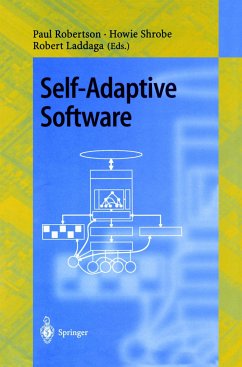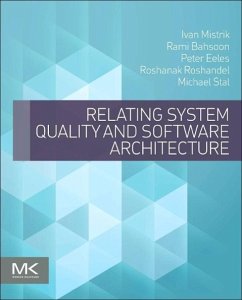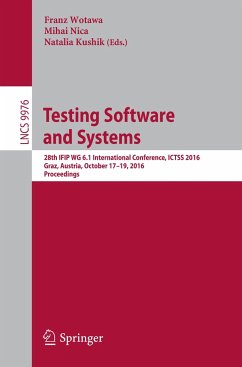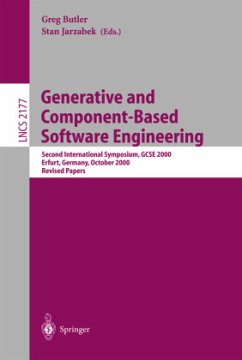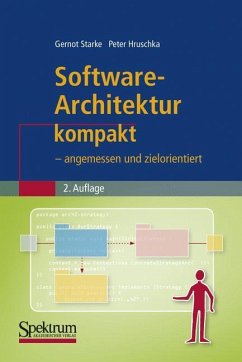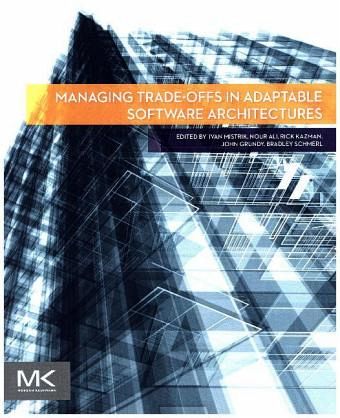
Managing Trade-offs in Adaptable Software Architectures

PAYBACK Punkte
39 °P sammeln!
Managing Trade-Offs in Adaptable Software Architectures explores the latest research on adapting large complex systems to changing requirements. To be able to adapt a system, engineers must evaluate different quality attributes, including trade-offs to balance functional and quality requirements to maintain a well-functioning system throughout the lifetime of the system.This comprehensive resource brings together research focusing on how to manage trade-offs and architect adaptive systems in different business contexts. It presents state-of-the-art techniques, methodologies, tools, best practi...
Managing Trade-Offs in Adaptable Software Architectures explores the latest research on adapting large complex systems to changing requirements. To be able to adapt a system, engineers must evaluate different quality attributes, including trade-offs to balance functional and quality requirements to maintain a well-functioning system throughout the lifetime of the system.
This comprehensive resource brings together research focusing on how to manage trade-offs and architect adaptive systems in different business contexts. It presents state-of-the-art techniques, methodologies, tools, best practices, and guidelines for developing adaptive systems, and offers guidance for future software engineering research and practice.
Each contributed chapter considers the practical application of the topic through case studies, experiments, empirical validation, or systematic comparisons with other approaches already in practice. Topics of interest include, but are not limited to, how to architect a system for adaptability, software architecture for self-adaptive systems, understanding and balancing the trade-offs involved, architectural patterns for self-adaptive systems, how quality attributes are exhibited by the architecture of the system, how to connect the quality of a software architecture to system architecture or other system considerations, and more.
This comprehensive resource brings together research focusing on how to manage trade-offs and architect adaptive systems in different business contexts. It presents state-of-the-art techniques, methodologies, tools, best practices, and guidelines for developing adaptive systems, and offers guidance for future software engineering research and practice.
Each contributed chapter considers the practical application of the topic through case studies, experiments, empirical validation, or systematic comparisons with other approaches already in practice. Topics of interest include, but are not limited to, how to architect a system for adaptability, software architecture for self-adaptive systems, understanding and balancing the trade-offs involved, architectural patterns for self-adaptive systems, how quality attributes are exhibited by the architecture of the system, how to connect the quality of a software architecture to system architecture or other system considerations, and more.




